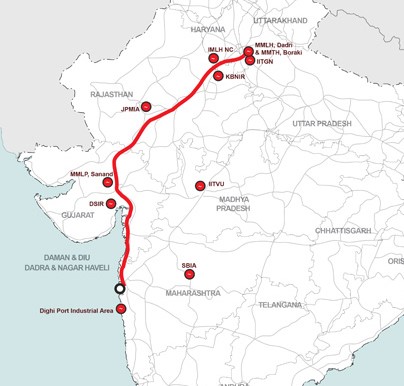The Delhi-Mumbai Industrial Corridor (DMIC) is an ambitious infrastructure development project that connects two of India’s largest cities, Delhi and Mumbai. It is designed to enhance industrialization, create global trade hubs, and promote urban and infrastructure growth across six states. The project spans 1504 km, and aims to build world-class industrial zones, manufacturing hubs, and integrated logistics facilities, which will stimulate economic growth and create employment.

